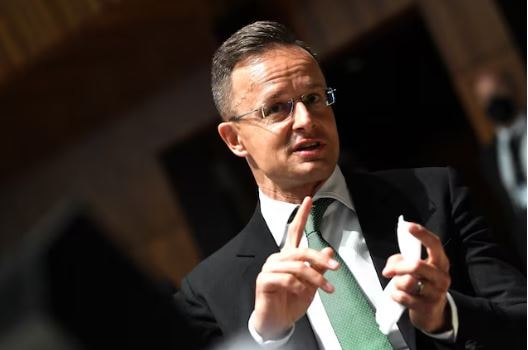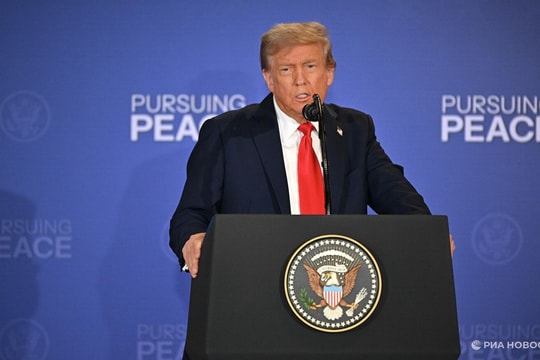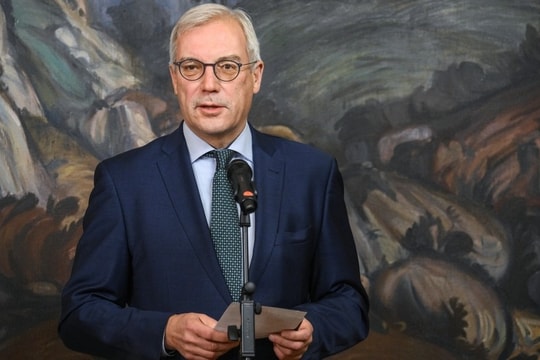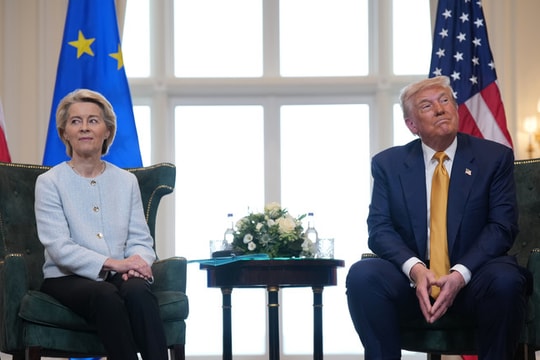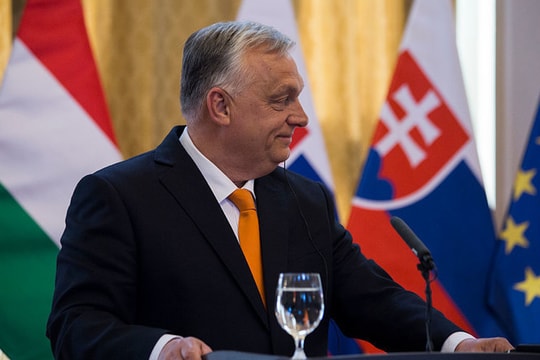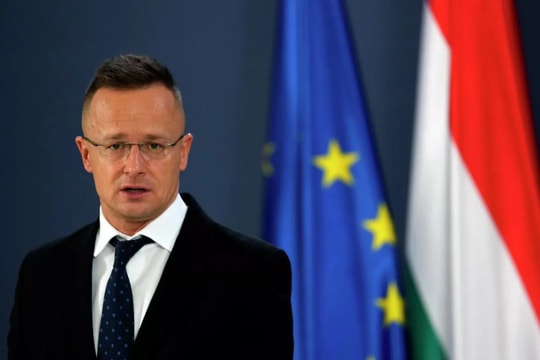The underlying reason why the EU has not approved 'Nord Stream 2'
Russian President Putin said that Gazprom could increase supplies through the Nord Stream 2 pipeline, helping Europe cool its soaring gas prices. However, the European Union is not yet ready to approve the project.
Remote, quiet but energy-rich, the Lubmin region of northern Germany is home to the world's most controversial gas pipeline system.
Nord Stream 2 runs 1,230 km from Vyborg in Russia across the Baltic Sea to Lubmin in Germany, bypassing Ukraine and Poland. The pipeline is complete and is awaiting approval before it begins delivering 55 billion cubic metres of natural gas to Europe each year.
According to CNBC, in the context of geopolitical tensions, this is not an easy task.
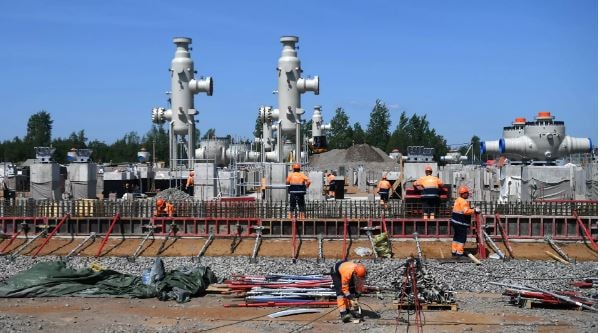 |
| Nord Stream-2. Photo © Sputnik / Iliya Pitalev |
US State Department officials have warned Europe not to bow to Russian pressure and not to easily bypass the necessary procedures to approve the Nord Stream 2 project early.
If Russia has more gas to ship to Europe to ease the current supply shortage, it should do so through existing pipeline infrastructure, including the one that goes through Ukraine, said Amos Hochstein, senior adviser for global energy security at the US State Department.
“I don’t think Europe should be forced into a situation where it has to waive restrictions, waive procedural or legal processes to address a crisis that can in some way be addressed through other mechanisms and solutions,” Hochstein said.
However, the administration of US President Joe Biden has ruled out the idea of imposing further sanctions on the pipeline, arguing that Russia would still complete the project regardless of economic sanctions.
Some European parliamentarians strongly oppose Nord Stream 2 and do not want regulators to approve the project.
“We want to get rid of our dependence on Russian energy,” Morten Petersen, a Danish member of the European Parliament, told CNBC.
The problem of cooling gas prices
Russian officials say that quickly approving Nord Stream 2 could help lower natural gas prices as Europe struggles to cope with an energy crisis.
Russian President Vladimir Putin has insisted that the project is purely commercial and an efficient way to supply gas to Europe.
Nord Stream 2 shortens the route of gas transportation to Europe compared to the pipeline system through Ukraine. With a more modern level and the cost of maintaining this new project is also cheaper.
The majority of Europe’s natural gas comes from Russia. According to Eurostat, the EU imported 43% of its gas from Russia in 2020. Ukraine also earns billions of dollars a year from transiting Russian natural gas.
In 2019, Russia exported nearly 90 billion cubic meters of gas via Ukraine, while the estimated volume this year is only about 40 billion cubic meters.
Poland and Ukraine are two countries that strongly oppose "Nord Stream 2", citing concerns about energy security. Kiev fears that the new project could reduce the volume of gas transported through the pipeline system in Ukraine, causing the country to lose a significant source of revenue.
Opponents of Nord Stream 2 also argue that the system is inconsistent with Europe's climate goals and largely helps boost Russia's economic and political influence in the region.
Meanwhile, Russia has rejected these claims and stressed that the Baltic Sea pipeline project could play an important role in cooling gas prices.
Russian Deputy Prime Minister Alexander Novak said that “early completion of the certification process” for Nord Stream 2 would help “de-escalate the current situation.”
In fact, natural gas prices have recently fallen after President Putin hinted that Russia could increase production and that Gazprom has never “refused to increase supplies to customers if there are suitable contracts.”
President Putin said that Gazprom could increase supplies by 17.5 billion cubic meters of gas through the new pipeline system immediately after regulatory approval.
It will only be a matter of time before German energy regulators approve Nord Stream 2, according to Gustav Gressel, senior policy fellow at the European Council on Foreign Relations.
Natural gas prices in Europe have risen more than 130% since the beginning of September and are now more than eight times higher than at the same time last year.
German and European leaders are under pressure to take steps to ease the impact of soaring gas prices on households, amid concerns they will derail the economic recovery of recent months.
This has prompted some figures in Europe to recommend quickly approving Nord Stream 2 to meet higher demand next winter.
Is the gas price crisis due to European policy mistakes?
As for the EU, the 27-member bloc remains uncertain about what to do with Nord Stream 2.
Increasing gas imports from Russia could remedy the situation in the short term, but difficult questions remain about what to do in the medium and long term, especially with carbon neutrality efforts underway across Europe today.
While some see natural gas - a fossil fuel - as a solution to reducing CO2 emissions on the path to carbon neutrality, many believe that energy independence is the most important aspect and therefore nuclear and renewable energy are considered options.
The US and some Eastern European countries believe that Russia wants to use the $10 billion pipeline system, which does not go through Ukraine, as a geopolitical weapon to increase the EU's dependence on Russia, while causing Kiev to lose revenue from gas transit on the traditional transportation route.
However, Russian President Vladimir Putin said that EU energy policy was being made by “non-experts” who were “deceiving voters”. But the world could avoid future crises if it focused on “fundamental projects” like Nord Stream 2 rather than spot deals.
Mr Putin said the gas crisis was caused by the EU's short-sighted attempts to switch from long-term contracts to spot contracts and the share of renewable energy in the energy policy mix.
According to Mr. Putin, this has caused US and Middle Eastern liquefied gas producers to reduce supplies to Europe, leading to a shortage of 75 billion cubic meters of gas on the old continent. The "Nord Stream 2" project with a capacity of 55 billion cubic meters can help overcome this.
“When Europe set market rules, it was based on the premise that it was a premium market. But that is not the case – gas was sent to Latin America and Asia. What does that have to do with Russia? This is the result of the European Commission’s own economic policies,” President Putin stressed./.


